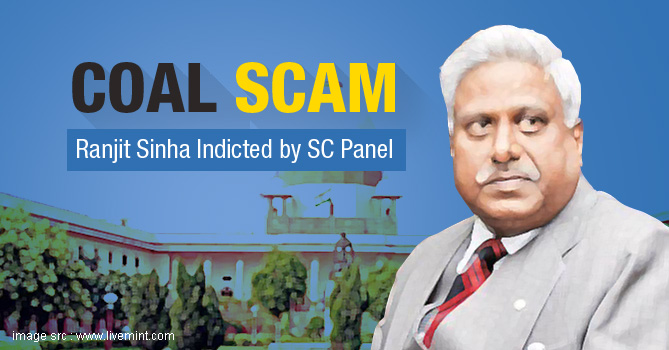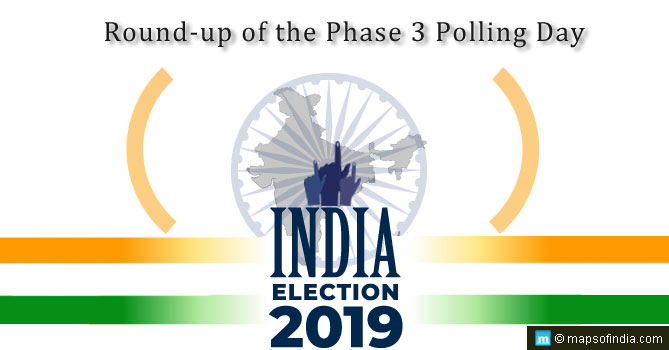Earlier this week, the Supreme Court panel set up to investigate allegations of misconduct by former CBI Chief Ranjit Sinha during his term in office, confirmed that there was indeed a ‘needle of suspicion’ against Sinha in his handling of the controversial coal allocation scam that took place between 2004-09 under the UPA I & II regimes.
This confirmation is going to seriously dent CBI’s reputation as a neutral and fair investigative agency of the central government.
In a sealed report submitted to the Supreme Court, former CBI officer ML Sharma confirmed that there was prima facie case of misdemeanor against Ranjit Sinha for trying to influence the outcome of the investigation.
He also confirmed that the controversial visitor’s diary at Ranjit Sinha’s residence was indeed genuine and the entries had not been tampered with.
Suspicion of Ranjit Sinha’s involvement came to light when senior advocate Prashant Bhushan submitted a copy of the controversial visitor’s diary to the court, just two years before Sinha was to retire, which contained multiple visitor entries of several persons named in the coal allocation scam.
Prashant Bhushan’s contention was that Ranjit Sinha misused his official position as CBI Director in meeting with these individuals and their representatives several times at his residence, which is in itself a controversial practice. The diary showed some individuals had visited the residence 50-60 times.
Ranjit Sinha’s initial defence was that the diary and its entries were fake. ML Sharma’s report confirms that the diary and its entries are indeed genuine and it is now for the Supreme Court to decide what action it wishes to take on the same. The court has reserved its order for now.
Ranjit Sinha has denied any wrongdoing in meeting the named persons and said that he had not taken any favors in return.
The Apex court has been upset with the CBI for dragging its feet in closing the coal scam investigation.
Present government’s seriousness questioned
Prashant Bhushan has accused the Modi government of shielding Ranjit Sinha and going slow on the investigation. He said that the government was preventing the Special Investigation Team (SIT) from accessing preliminary enquiry related investigation documents. Bhushan has accused the attorney general and CBI’s legal counsel of trying to protect Sinha.
Bhushan has further highlighted the fact that a specific advocate representing Anil Ambani’s ADAG, has also been representing the government in other cases, thereby alluding to a conflict of interest and questioning the government’s seriousness in pursuing the coal scam investigation.
He also stated that the said advocate has represented all those named in the 2G case and often gives opinions on behalf of the government.
The government’s ambivalence in pursuing the coal allocation case does come as a surprise since it was the BJP that took up the matter vociferously in Parliament in 2012 when the CAG first submitted its draft report highlighting the scam.
The case is now being closely followed by media and public, and the government would do well to offer its full commitment in pursuing the case to its logical conclusion.
The Coal Allocation Scam
The coal allocation controversy first came to light when in early 2012 the Comptroller and Auditor General (CAG) presented its draft report wherein it claimed a Rs 10,673 billion loss to the central exchequer by not pursuing the competitive bidding process.
The final CAG report tabled in Parliament the same year drastically toned down the loss to Rs 1,856 billion. The then Prime Minister Dr Manmohan Singh was forced to make a statement in Parliament, denying any wrongdoing and justifying the government’s decision to ‘allocate’ coal blocks rather than ‘auction’ them in order to keep the price of coal low since it was a feeder to other industries.
BJP, however, continued to raise its protest and complained to the Central Vigilance Commission (CVC) to hand over the case to CBI for further investigation. The CBI’s initial investigation led to its filing of FIR against twelve firms for misrepresentation and attempt at hoarding of coal blocks rather than undertaking mining operations.
Modi-led government proved the UPA wrong
After coming to power in 2014, the Narendra Modi-led government initiated steps for auctioning of 11 coal blocks in 2015. The process was clear, fair, and transparent, and it led to the government earning Rs 80,000 crore. While this maximized revenue to the government, it did not result in the price of coal rising to prohibitive levels, as was claimed by UPA regime.
The entire auction process was well received by the industry and was appreciated by all stakeholders. This has now become the standard template for offering the country’s natural resources for commercial development.
The government has since followed the same by auctioning telecom spectrum to private players and earning maximum revenues. The 2G telecom spectrum sale was another case where the UPA regime came under much criticism.
Time to re-establish CBI’s credibility
Central Bureau of Investigation (CBI) is India’s premier investigation agency and its credibility for fair and just investigation, free from government influence, is absolutely essential in strengthening Indian democracy.
CBI to India is what the FBI is to the United States. Between the 20s and early 50s in the US, law and order had reached a low and the people had lost their respect and trust for local and federal investigative agencies. The bureaucracy, judiciary, and police were largely compromised, with crony capitalism dominating local politics and business.
It took a person like J. Edgar Hoover, the founder and first Director of FBI as we know it today, to restore people’s faith in the federal agency and make it one of the best investigative agencies in the world.
India needs a Hoover but that can’t happen unless all political parties come together and commit to making the CBI truly free from government influence. Ranjit Sinha has done a disservice to the agency, which otherwise has been performing creditably in cases where political parties or individuals are not involved.
While the nation looks up to Supreme Court for its judgement on the coal allocation scam, it is imperative for the political class to come together to make CBI a truly neutral body.






